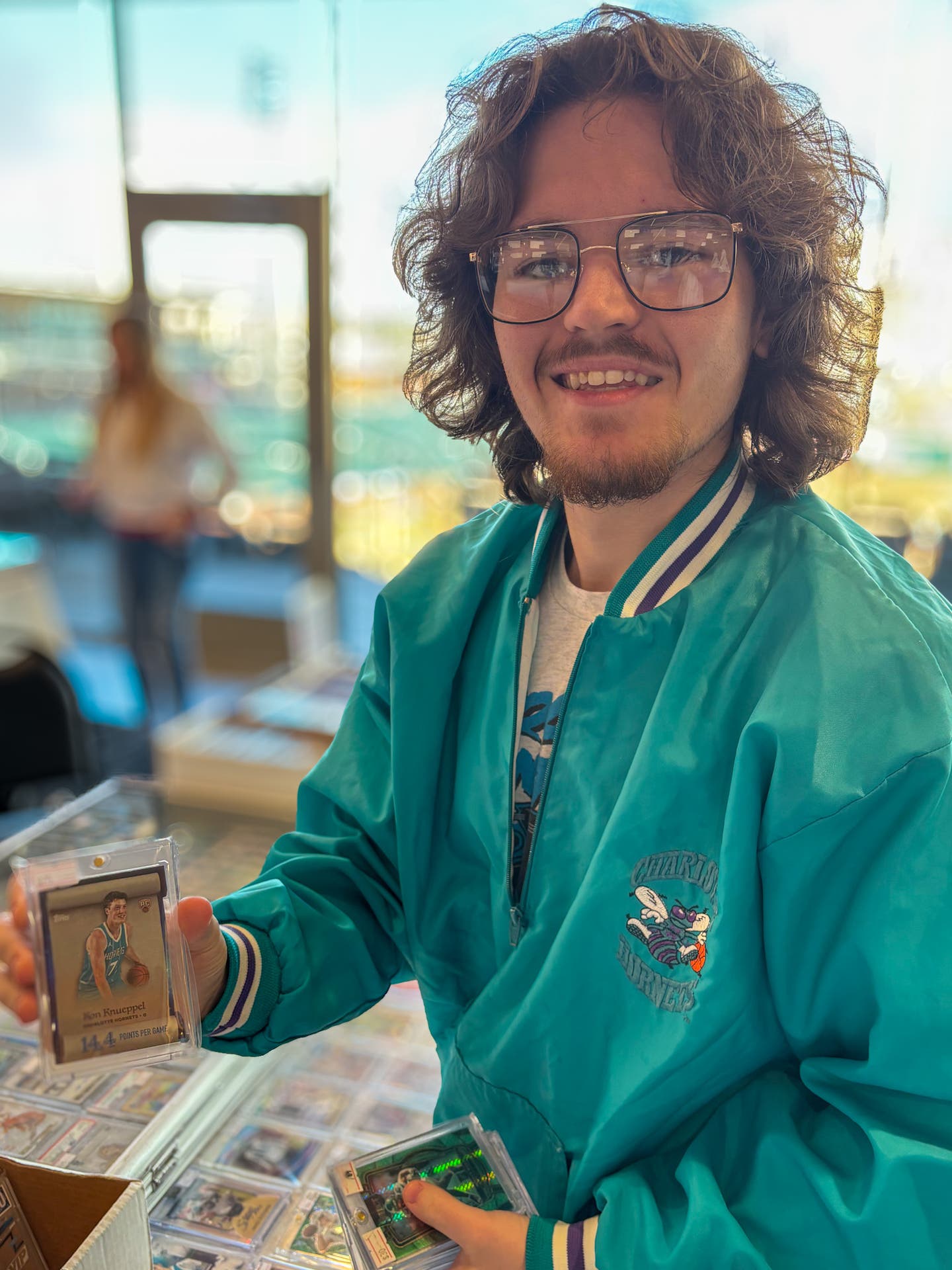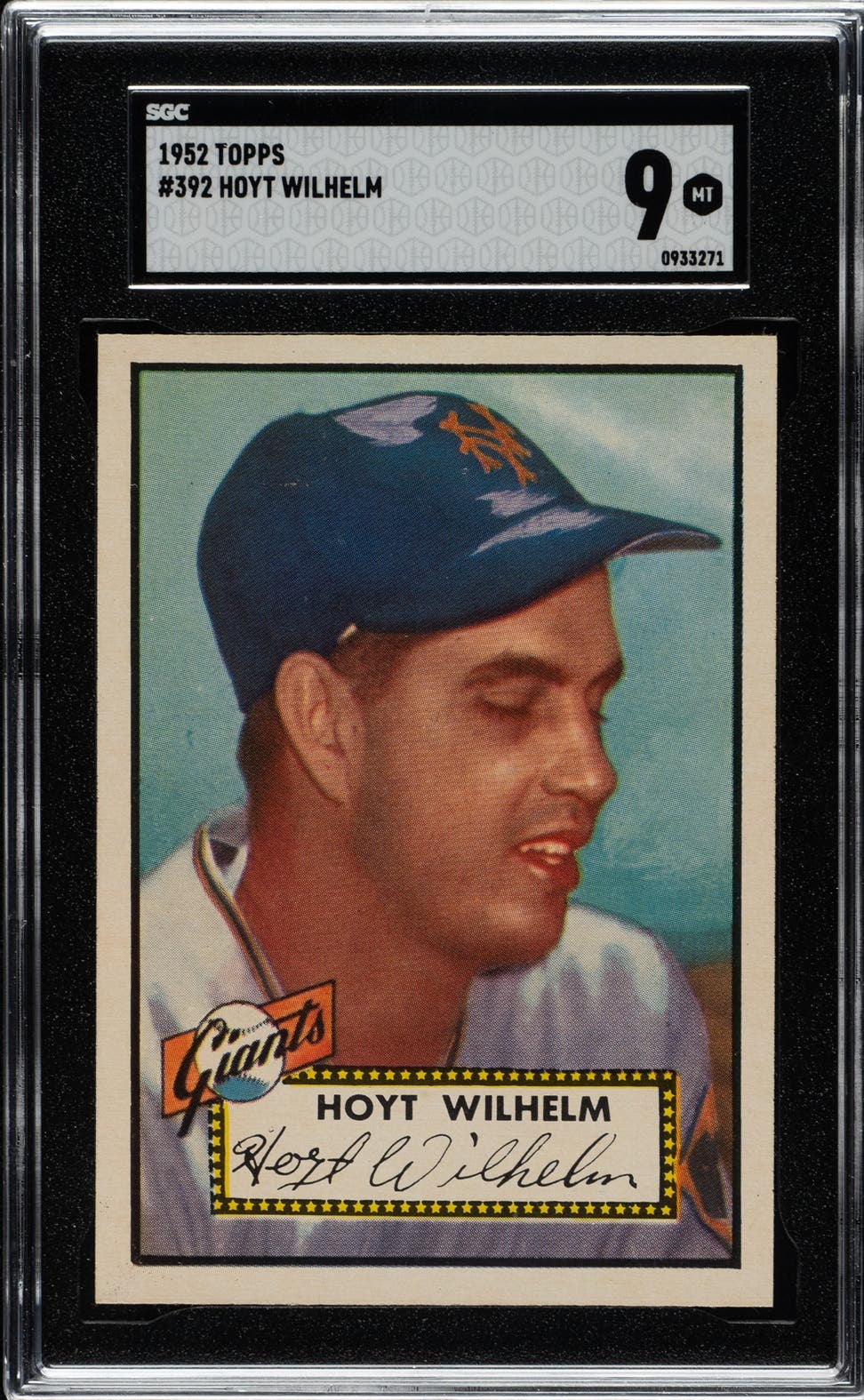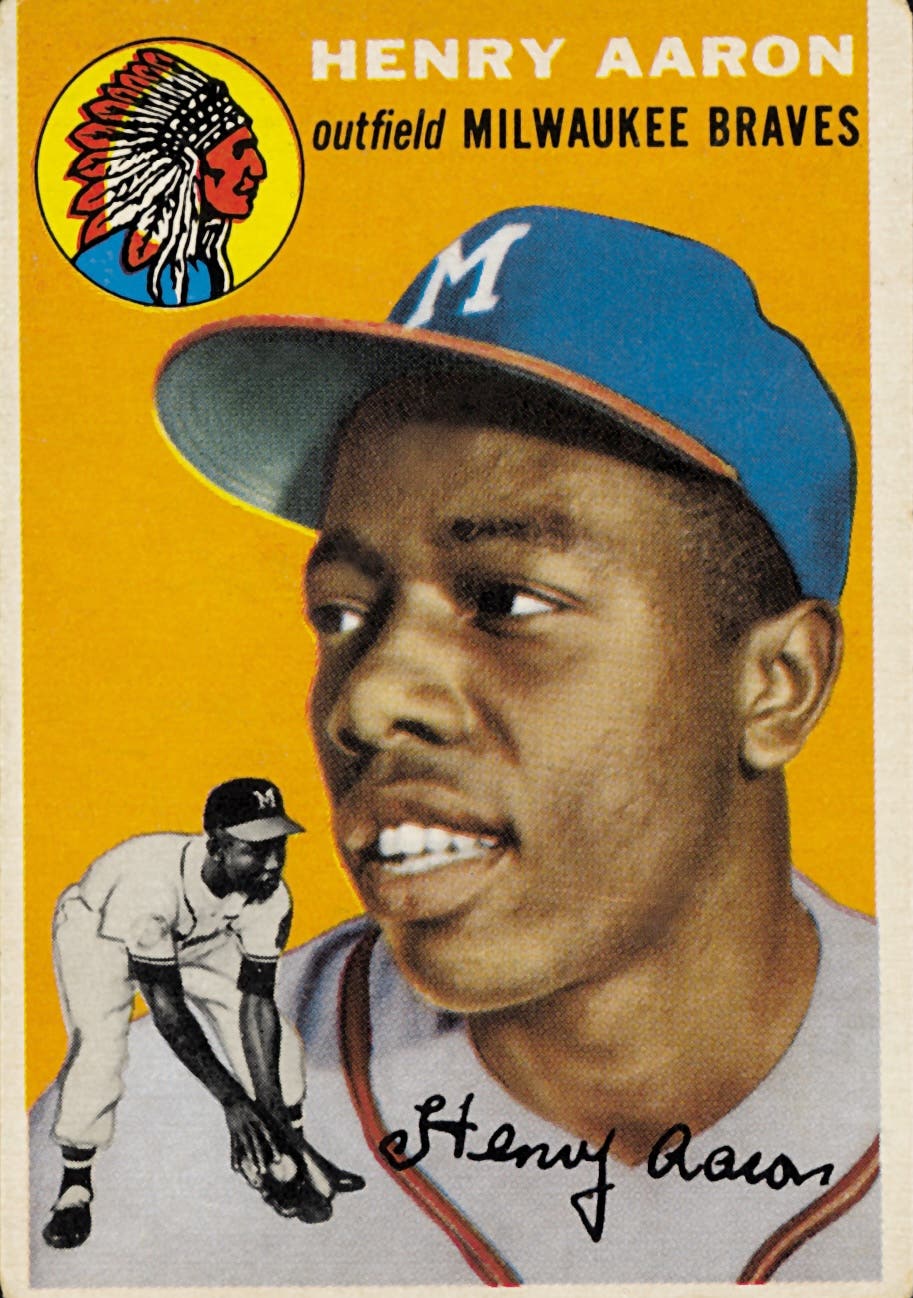News
The King of Cards
When Paul Jones was 10 years old, his parents took him to a Las Vegas Stars minor league baseball game.
The Joneses sat in their seats and watched kids on the rail of the front row seeking autographs from players. Paul’s mom, Lorraine, suggested his dad, Barry, go buy a team set and a pen in the pro shop and see if Paul wanted to go get autographs.
Barry bought some cards and instructed his son -- who has Asperger’s syndrome, a neurodevelopment disorder that affects the ability to effectively interact and communicate with people – to stand at the rail and if players come by, ask them for their autograph. Players walked by, but Paul didn’t say a word. His parents observed from the stands as Paul kept to himself.
Finally, Stars manager Tim Flannery approached Paul and asked if he wanted his autograph. Paul nodded, “Yes.” The 10-year big league veteran obliged.
“Tim takes his cards and the pen and thumbs through the deck and he finds his card and signs it,” Barry said. “He notices that nobody else has signed for him. So, Tim says, ‘Hey, would you like to go in the dugout with me?’ So Pauly looks at me and I go, ‘Yeah, yeah. Go, go.’”
All the Stars players signed, and Paul was pumped. That moment sparked a passion in Paul that hasn’t left him even 24 years later.
Those were the first baseball cards and autographs Paul collected, but certainly not the last.
In 2008, Paul became the Guinness World Record holder for having the largest private baseball card collection.
“I’ve tripled it since 2008,” said Paul, who is now 34 years old.
Remarkably, as of mid-January, Paul’s card collection is up to 2.8 million. Yes, million. Paul also has 98,000 autographs, which were mostly personally obtained.
“One day it just clicked,” Barry said about his son’s collecting. “It helped him with reading, it helped him with math, it helped him with spelling. He was just (immersed) in it.”
Barry said he is asked by people all the time how many cards his son has in his collection.
“What happens then is they’ll say, ‘2.8? Are you kidding me?’” said Barry, who noted Paul adds about 300,000 cards to his collection annually. “They give you that unbelievable, ‘Nobody has 2.8. Why would you collect that many cards?’ That’s what usually happens when you say 2.8. People are non-believers. But then I explain Pauly has a learning disability and baseball was like the saving grace for him.”
Said Paul: “I have a passion for the game of baseball and I love card collecting. I just think it’s a great thing to do. I love the sportsmanship and the camaraderie.”
With 2.8 million baseball cards, it’s not easy to store that massive of a collection. But Paul, who lives with his parents, has the family’s three-stall garage completely packed with the cardboard treasures.
The family recently moved to Idaho Falls, Idaho, where the new house has a downstairs apartment. Barry said, “Pauly has his own baseball world,” in his room, and there isn’t any open wall space to hang anything else.
This summer, Barry is getting a 60-foot by 40-foot shed built in the yard where Paul will be able to move all his cards and souvenirs. Paul will also have an office and big tables to line up and sort his record number of cards.
Paul loves being the Guinness World Record holder for the most cards by a person, not a business, as he puts it.
“It’s the greatest thing on Earth because I’ve become really famous,” he said.
Paul is also well known in the collecting world because he made an appearance in the movie, “Jack of All Trades.” The documentary released last year investigates the baseball card scandal in the 1980s and ’90s.
“Every card is a good card”
Paul has quite the organizational system for his baseball cards.
He keeps them in 3,200- or 5,000-count boxes that are filed alphabetically by each players’ last name.
Paul frequently goes out to the garage to sort his cards and look at his collection.
“It’s fun to go back and reminisce some of the old memories that I have of some of the guys that I used to bat boy for,” Paul said.
Paul doesn’t collect any certain players. The most cards he has of one player is over 2,000 of Jose Canseco. The two have a special connection since Paul was a bat boy for one of Canseco’s minor league teams.
Paul’s favorite card in his collection is a Mark McGwire 1986 Huntsville Stars.
“I only paid a nickel for it at a card show, now it’s worth $150,” Paul said.
Other notable players he likes to collect are Harmon Killebrew and Rollie Fingers. According to Barry, Paul has met 53 MLB Hall of Famers, been to Cooperstown, N.Y., eight times and attended a number of World Series and All-Star games.
Paul isn’t particular when it comes to collecting a favorite team, either.
“He’ll say San Francisco is his favorite because he knew Bruce Bochy of the Giants when Bruce was on the Padres,” Barry said. “But he loves every team. There’s no real favoritism. Every team is a good team. Every card is a good card.
“He collects everything. He’s got cards going back to ’52.”
Most days, Paul said he goes out and buys cards. One of his favorite locations to frequent is his local sports cards shop, Silver Slugger Coins & Cards in Idaho Falls.
“I buy unopened boxes of minor league and major league cards of every year,” Paul said.
Shop owner Joe Kunz saves common cards and boxes them up so when Paul stops in about once a week, he sells them for cheap.
“He doesn’t really care about the value of the cards, he just collects them for the cards,” Kunz said. “He’s not trying to find a thousand-dollar card at all.”
Kunz always enjoys when Paul and his dad stop into the shop to add to the collection.
“It’s pretty amazing to hear him talk about cards and all the knowledge he knows about them,” Kunz said. “It kind of blows my mind.”
Kunz thinks it’s insane that Paul’s collection exceeds 2.8 million cards.
“I didn’t believe him at first, but I’ve seen pictures and stuff and it’s like, ‘Holy cow. All right, he’s for real,’” Kunz said. “I see how many 3,200-count boxes they use. It’s crazy.”
Kunz always sees a spark in Paul’s eyes when he is rummaging through cards. With Paul’s special health condition, cards have been a godsend.
“I think it keeps him busy,” Kunz said. “It gives him something to fuel his passion with. That’s just his passion, he loves it.”
Barry and his wife always love to see the enjoyment on their son’s face when he opens packs or obtains autographs.
“It makes us happy, because he’s happy,” Barry said. “He’s always been a happy-go-lucky guy.”
Paul hasn’t had the easiest life, but he never lets that affect him. When he was born, doctors told his parents he probably wasn’t going to live more than three days. That turned into three weeks and longer. Doctors implied that the couple should put Paul into a state-run home because he was going to be a big burden with all his special needs. The Joneses weren’t sending their son anywhere.
“They were surprised he lived that long,” Barry said. “He was part of a Harvard Medical study, a UCLA study, a thing with Germany -- they were testing his blood and stuff. He’s our special kid, because we never really thought he was going to live as long as he has. The last thing the doctors told us was one day his brain could shut down, and that was it for us. After 10 years of going to the doctors two to three times a week, and nobody could give us a straight answer.”
Traveling the country
One big way Paul adds to his card and autograph collection is by frequenting baseball parks around the country.
Paul and his parents like to pick an area every summer and hit the minor league facilities. Paul prefers getting autographs of the minor league players because they are more accessible than major leaguers.
“I love getting autographs at the stadiums and picking up team sets and looking at old cards of guys I used to know and I used to hang out with,” Paul said.
Last year, the Joneses traveled to Texas and hit every ballpark – Barry thinks there were 17 – in the state.
In previous years, the family traveled across country to New England and logged 3,800 miles on their vehicle. Paul and his parents are making a return trip to Vancouver this summer to hit all the minor league parks all the way down to San Francisco.
At the parks, Paul always wants to pick up baseball cards.
“He doesn’t want one pack,” Barry said. “He wants one pack of every year you’ve got.”
The Joneses usually stay at the same hotels as the teams so Paul can hang out in the lobby and get autographs after a game.
“He loves talking to them and hearing their stories,” said Barry, who calls himself the chauffer on family trips.
Paul has become synonymous with a certain attire he wears to games to attract the attention of players. He was once hit by a foul ball, so he goes by the catchy nickname, “Foul Ball Paul.”
Paul had hats made in a variety of different colors. So, as his dad puts it, if Paul is attending an Oakland A’s game, he wears his green hat. If it’s a Los Angeles Angels game, he has on a red hat.
“Players see that hat and they’ll say, ‘You’re that kid. I’ve heard of you,’” Barry said.
Paul said he gets recognized everywhere: grocery stores, card shops and stadiums. He’s become quite famous as “Foul Ball Paul.”
The Joneses are hitting spring training this year, and Paul is getting ready by lining up autographs. His dad said Paul will bring up last year’s rosters of all the teams’ A, AA, AAA and major league rosters and pull cards of those players to bring with to camp.
Paul will get autographs in person at spring training, but he’ll also contact ex-professional baseball players via Facebook to see if he can mail them cards to sign. Barry said Paul has been in touch with over 900 players through social media.
As Paul’s collection continues to growth, he still has that same passion from Day 1 when he opened his first pack and got his first autograph. But with 2.8 million baseball cards, it stands to reason there has to be an end in sight.
“What we’d like to do is resubmit (to Guinness World Records) when he gets to like three million or 100,000 signed cards,” Barry said. “I think if he can get to that, that’s a pretty good milestone for him.”
That is Dad’s thoughts. But Paul doesn’t necessarily agree that three million are nearly enough cards.
“I’m going to continue collecting until the day I die,” he said.








